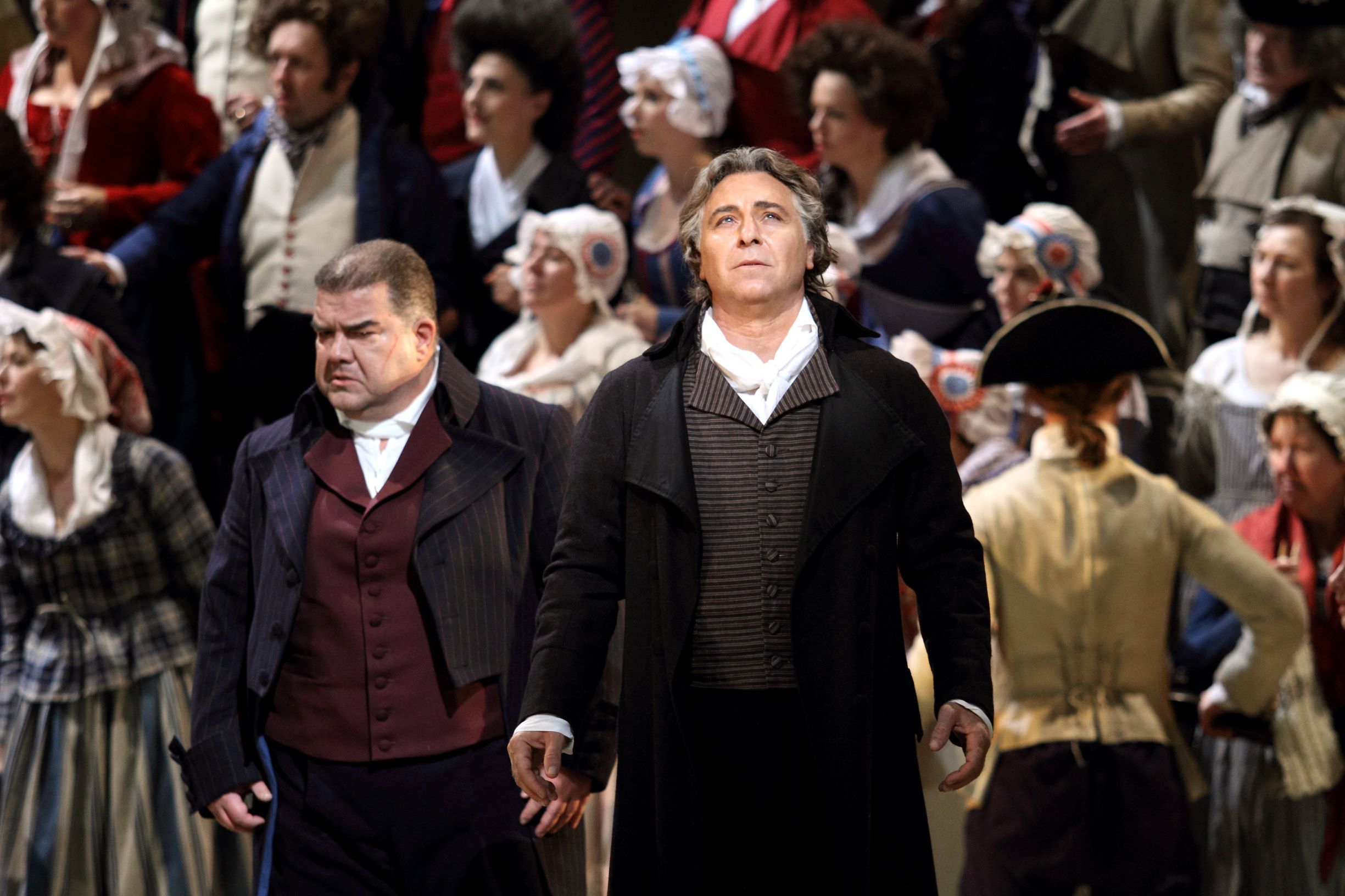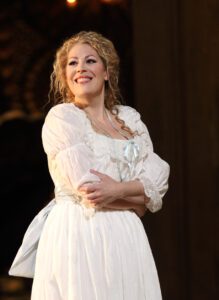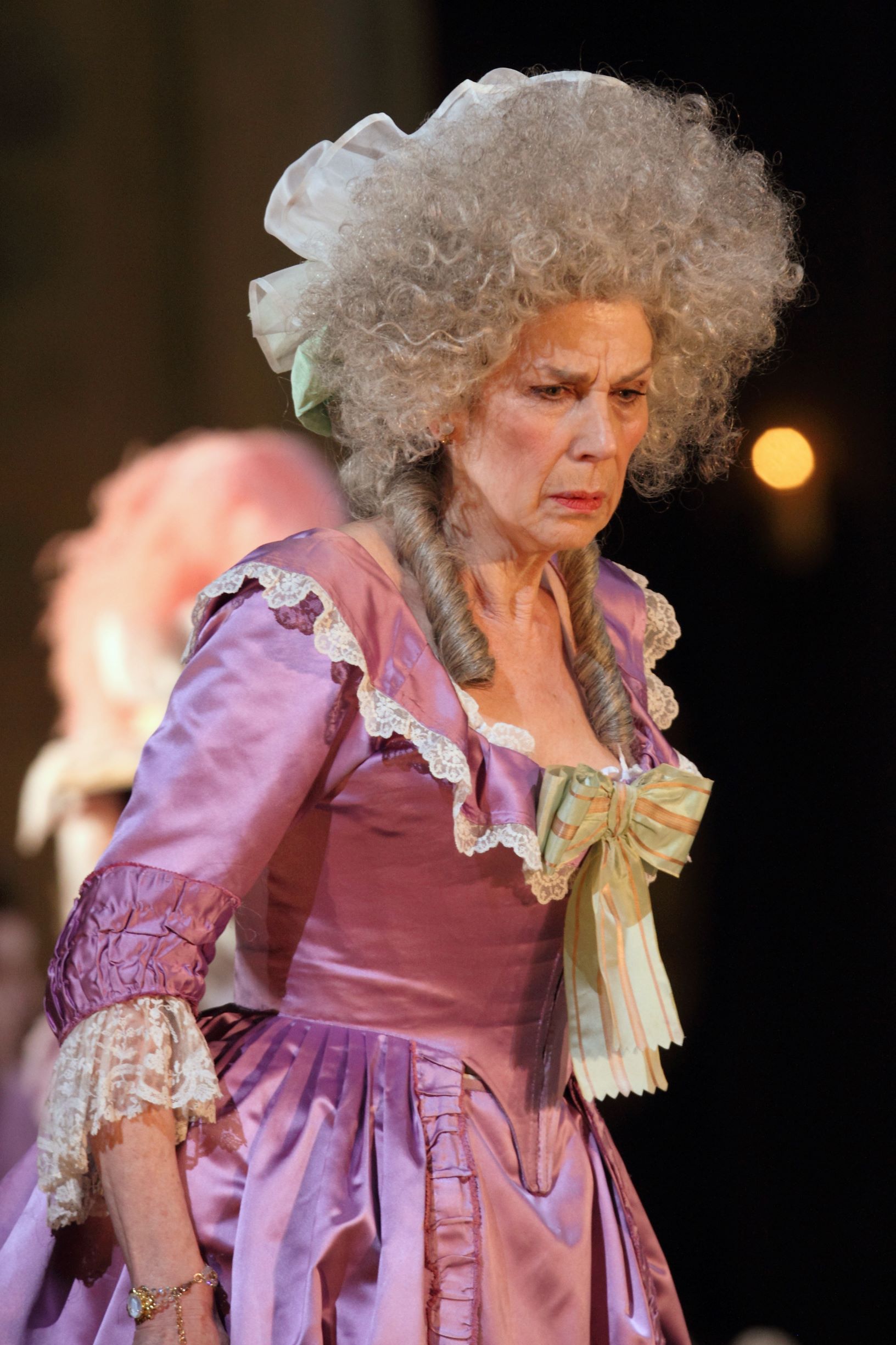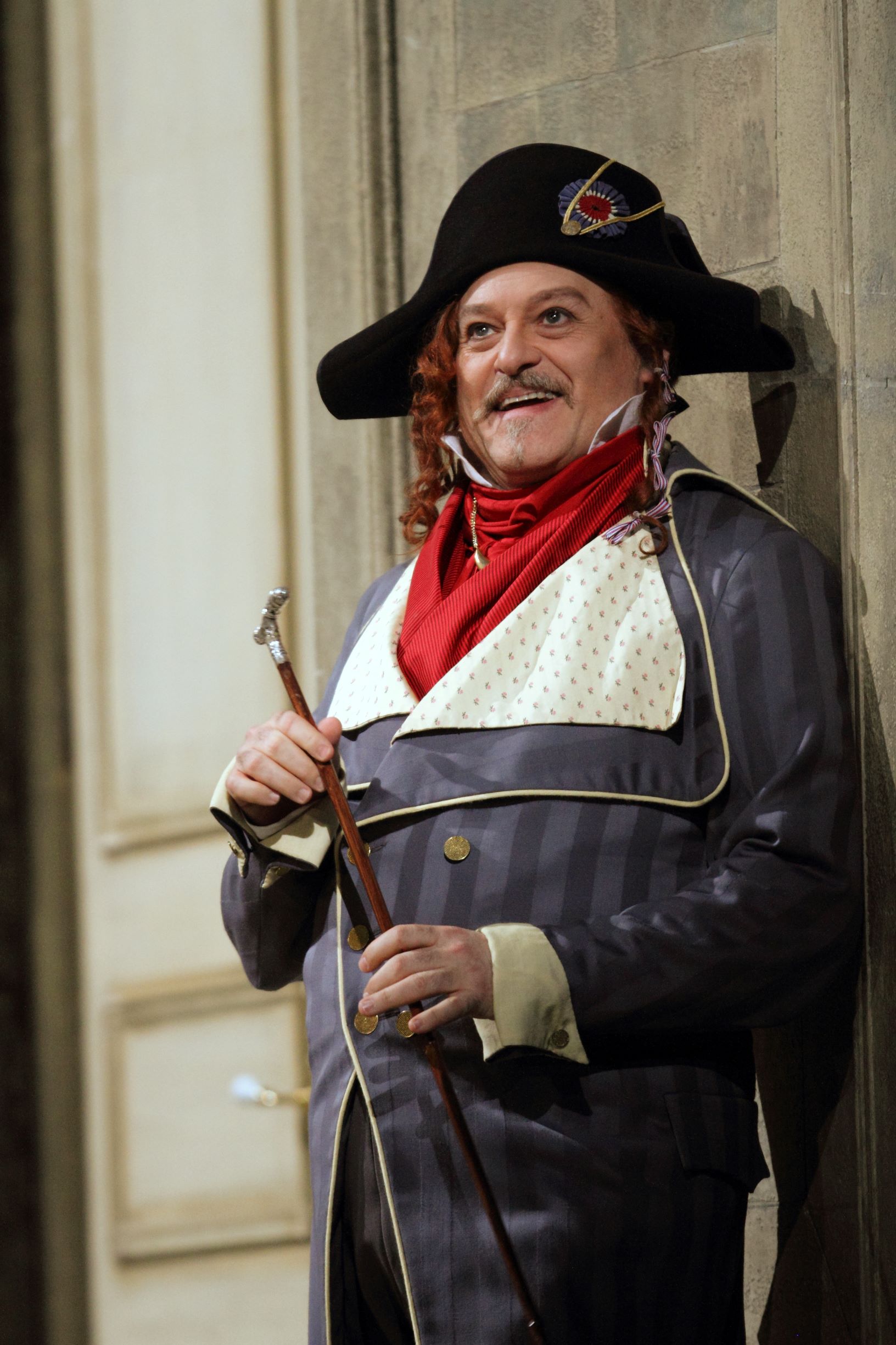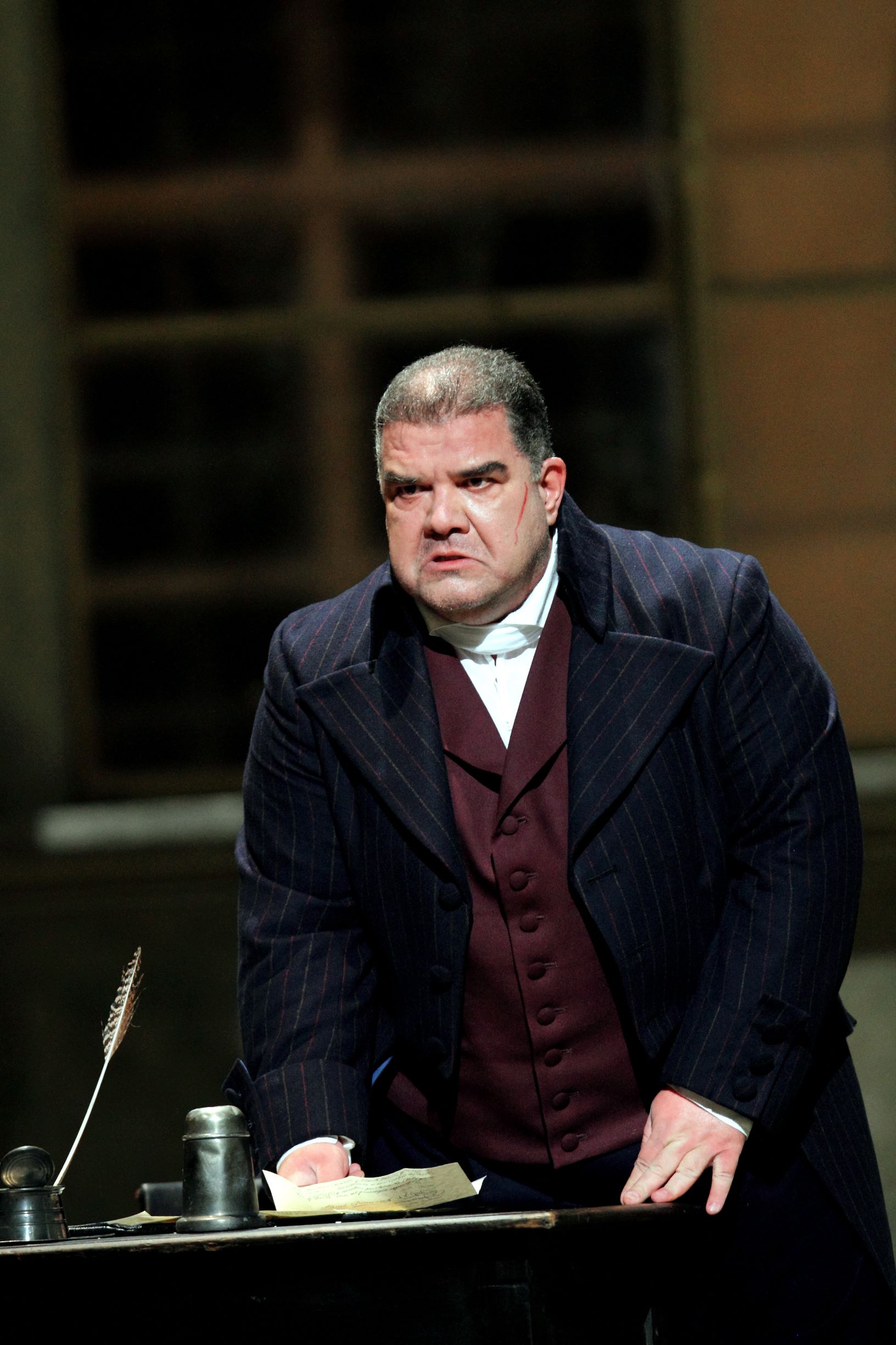Composer Umberto Giordano and librettist Luigi Illica stuffed their 1896 opera Andrea Chénier full of setting-specific details from the French Revolution. All the leading figures of that time are referenced, whether in a major role, a cameo, or in passing. Probably more than most historically-based operas, setting the production ‘in period’ therefore makes the most sense. David McVicar’s presentation for Royal Opera House, Covent Garden does so with immense style and blazing conviction.
Robert Jones’s sets use different dressings and combinations of the same architectural features to convey both the ordered opulence of the doomed aristocracy and the iconoclastic frenzy of the First Republic. Jenny Tiramani’s costumes look like they came straight out of Jacques-Louis David’s sketchbook.
The production debuted at Royal Opera House in 2015, and was revived this season (seen May 20th), in the hands of director Marie Lambert. Andrea Chénier had the same spectacular impact as before. This time, Roberto Alagna took on the title role, setting a tall order for the rest of the cast, at least in terms of matching his exceptionally powerful tenor (but more on that later).
Thankfully, vocal amplitude was in abundance here. Maddalena was sung triumphantly by Canadian-American soprano Sondra Radvanovsky. The incredible beauty of sound that she delivered came across at every point as a direct musical response to the dramatic situation. The glow of her tone was neither harsh at intense moments, nor dimmed in the light, conversational exchanges of the first act. Perhaps equally as impressive was Greek baritone Dimitri Platanias’s imposing performance as Carlo Gérard. While his delivery was somewhat unsubtle and unvaried in Act I, this was entirely compatible with his characterisation, making the gradual revelation of the passion and sensitivity beneath his adamantine exterior even more moving. His Act III aria “Nemico della patria?”, sung with jet-black tone and burning anger, rightly earned a prolonged ovation.
- Rosalind Plowright (Countess di Coigny) in ROH’s Andrea Chénier. All Photos: Catherine Ashmore
- Carlo Bosi (L’Incrediblile)
- Dimitri Platanias (Carlo Gérard)
On the eve of her 70th birthday, Rosalind Plowright sang the Countess di Coigny. She gave a lesson in effective and unexaggerated character acting, as well as ample evidence that one of the 20th century’s greatest voices retains strength, lustre and security in the 21st. Christine Rice was a vivid and appropriately vivacious Bersi. David Stout as Roucher showed fine stagecraft and vocal characterisation. Stephen Gadd offered a piquant and memorable Fléville. One could go on listing the multitude of minor roles (not forgetting the excellent Chorus) without finding a weak link. But at some point we have to return to the title role.

Roberto Alagna (Andrea Chénier) and Sondra Radvanovsky (Maddalena) in ROH’s Andrea Chénier. Photo: Catherine Ashmore
Alagna is making his 100th appearance at Covent Garden during the run of this revival. It would be nice to shower him with praise on such an occasion, but, unfortunately, things did not go well on the first night. Throughout the first act he constantly approached notes from beneath, often either not landing them solidly, or overshooting them. He gained better control later on, but the chief asset he brought to the role seemed to be loudness—necessary to ride the orchestral climaxes, but surely not enough in itself. He looked good and moved well, but his sound was all edge, and rough edge at that.
Conductor Daniel Oren, whose appearances at the Royal Opera have received mixed reviews lately, seemed in his element with this tricky score. The Orchestra sounded secure enough, although the first Act could have used some more magic and elegance, particularly in phrase endings. In the later Acts, with their increasingly Wagnerian sonorities, the players were on top form. Synchronicity and balance between stage and pit were well judged and achieved, allowing for generous ebb and flow of tempo.
With one exception then, the performances were overwhelmingly positive. But it is difficult to do justice to the intoxicating, stirring sweep that emerged as the sum of all these parts in Andrea Chénier. Shame on those sour souls who dismiss this opera as tawdry and obvious. It’s damn good music and damn good theatre.

